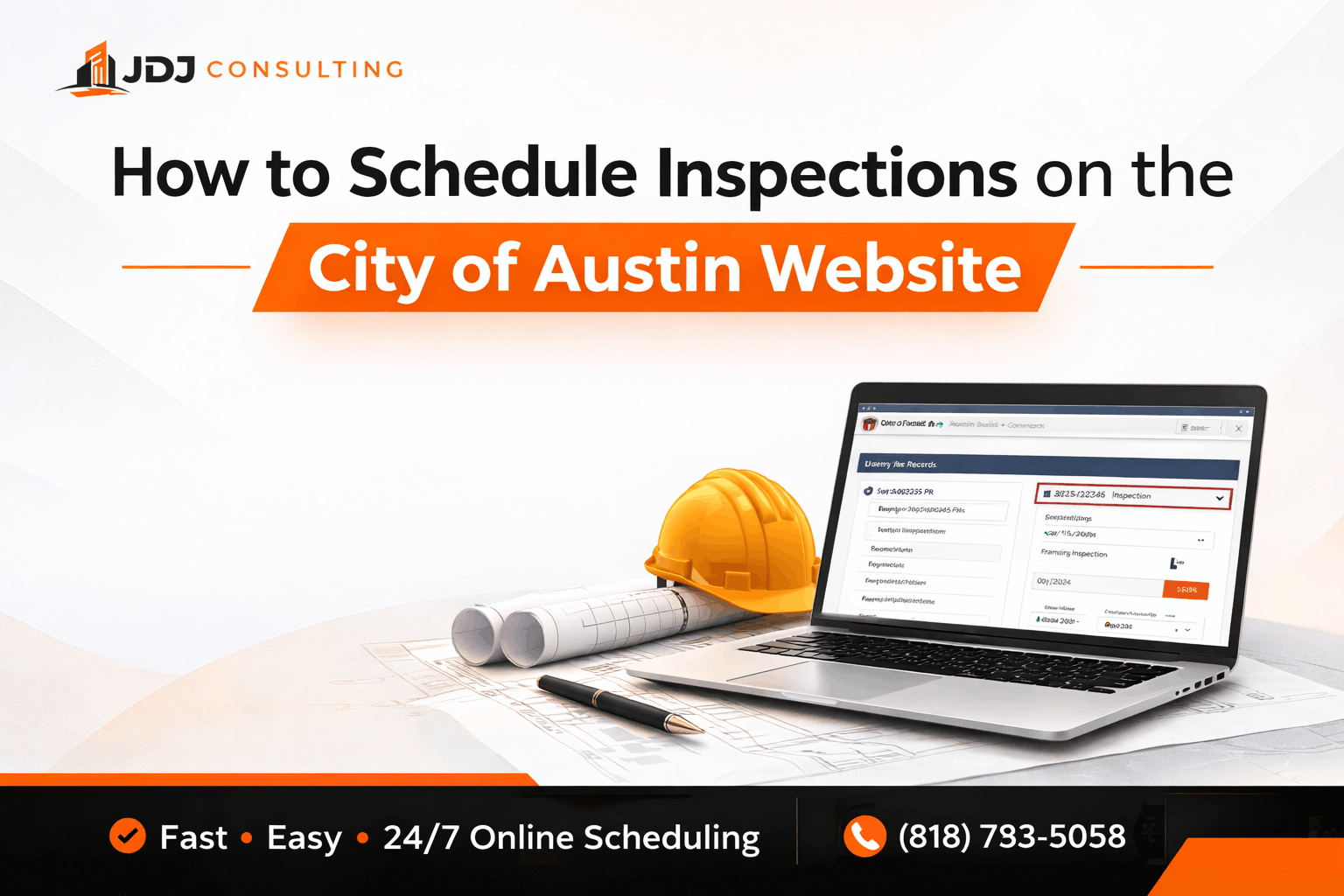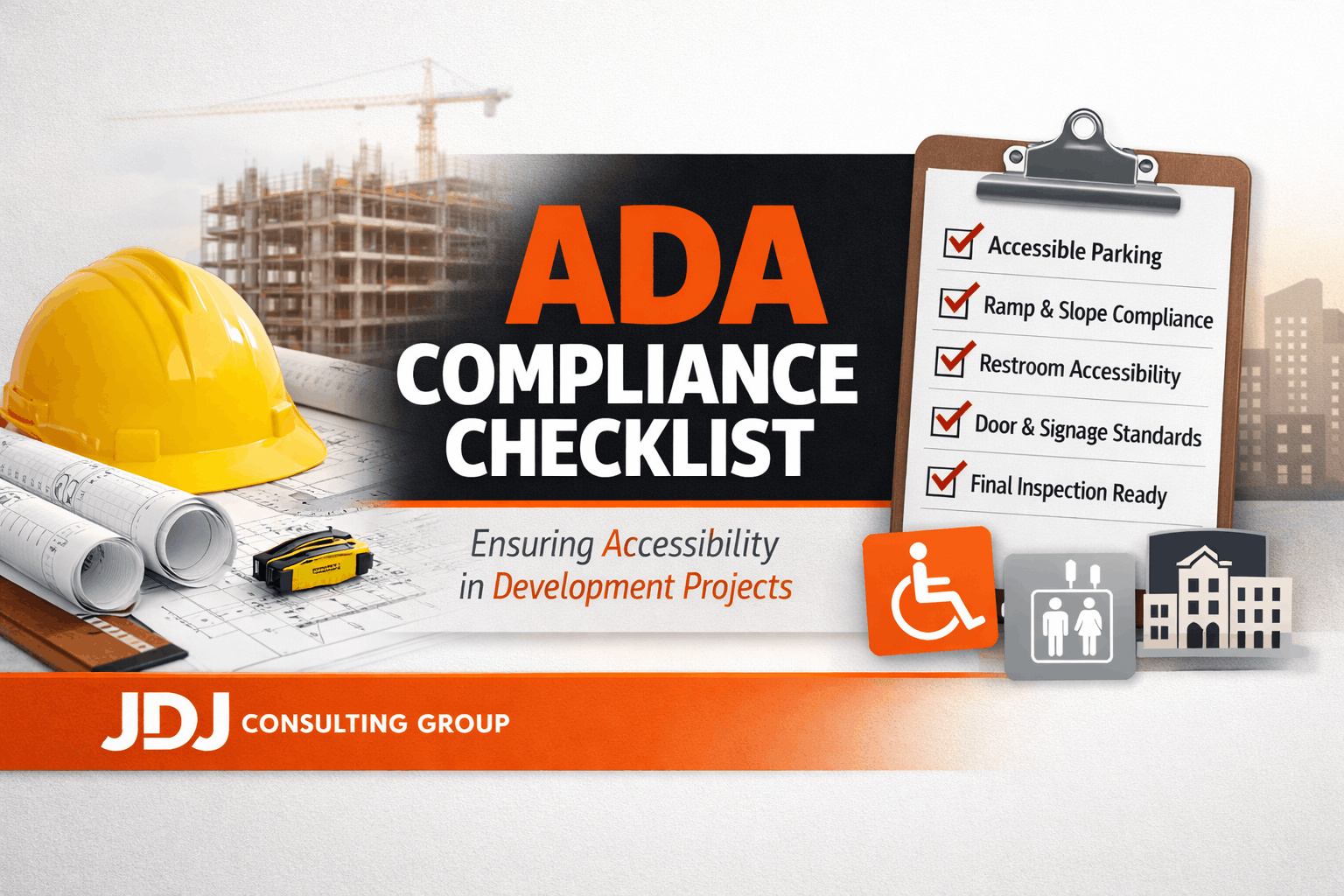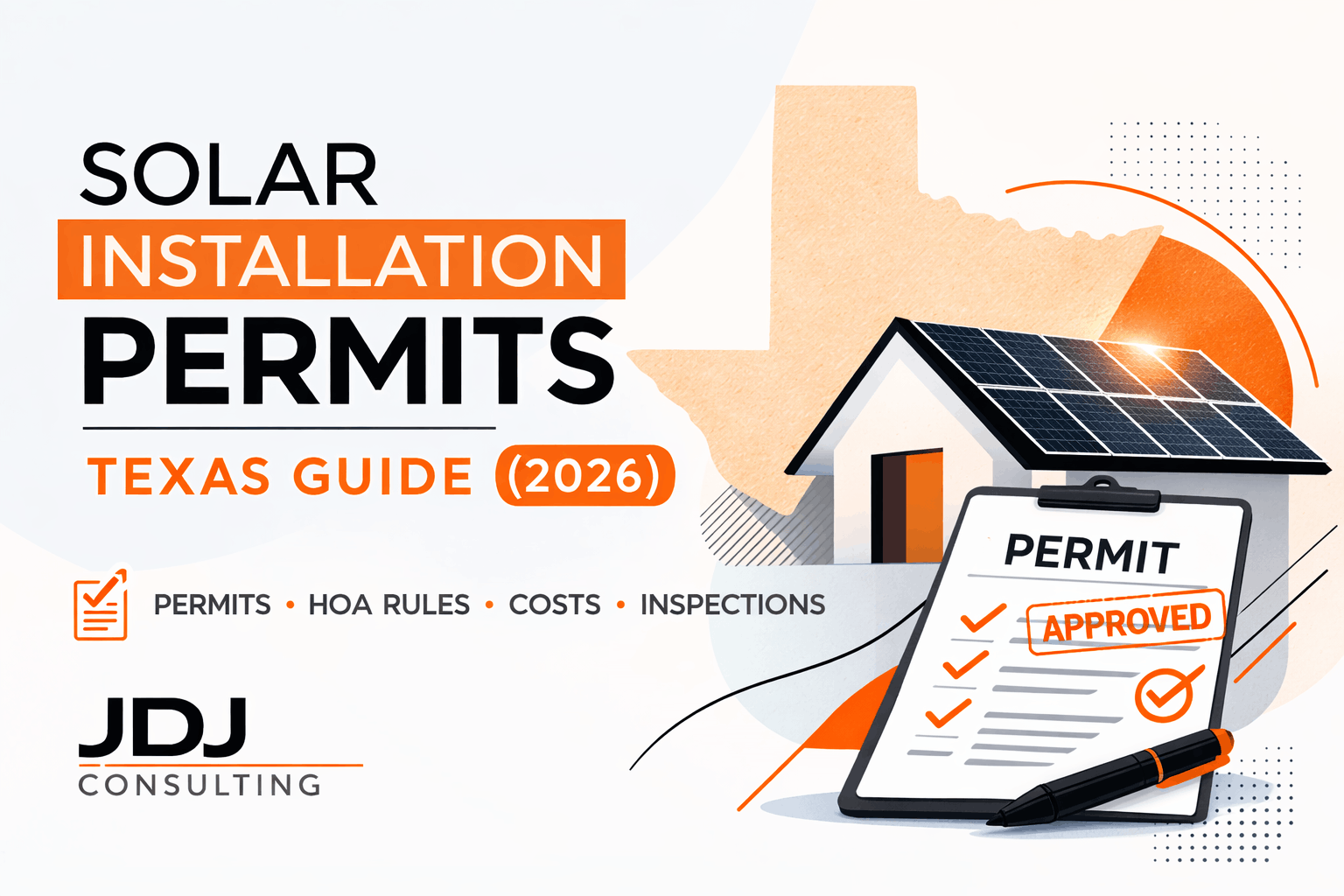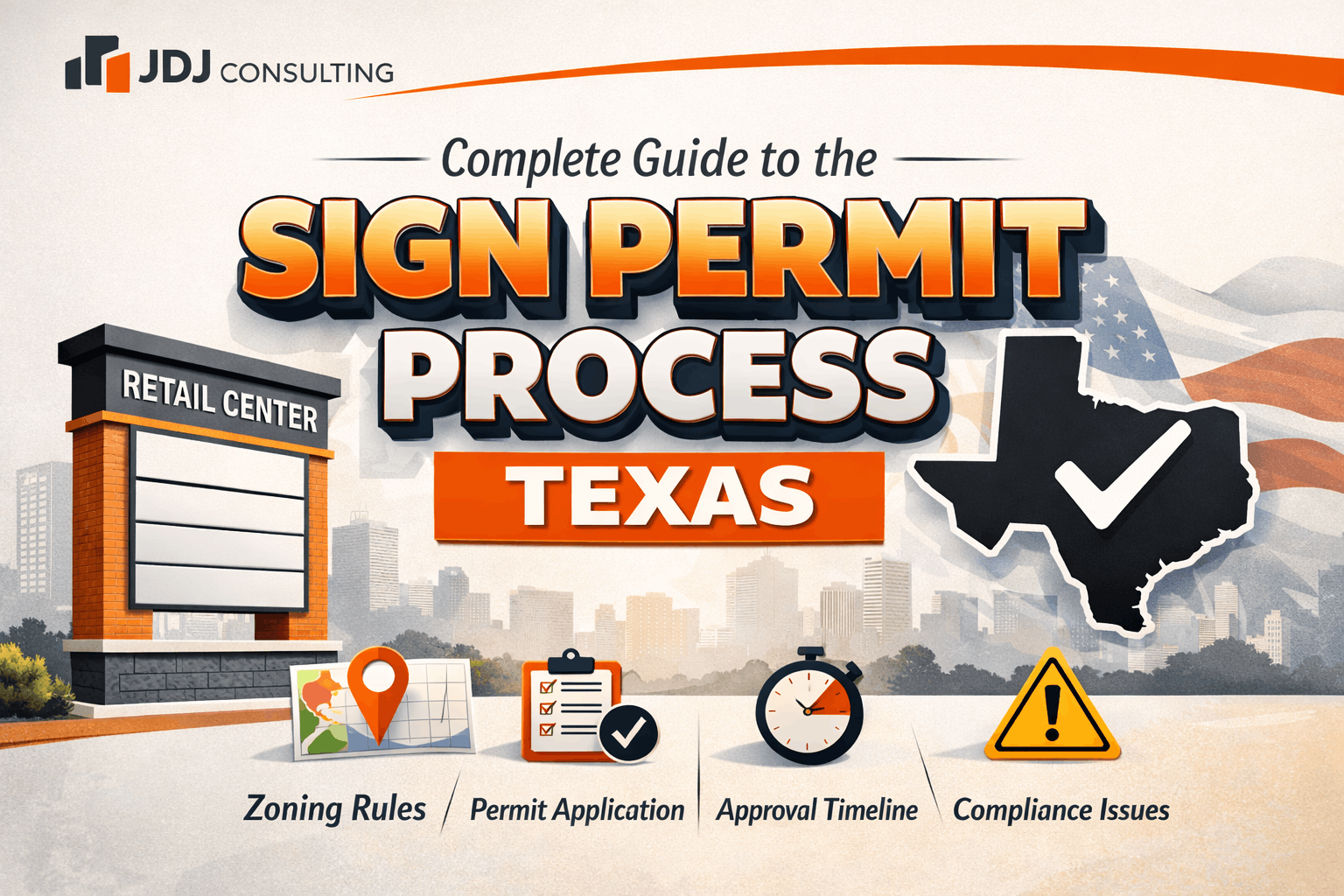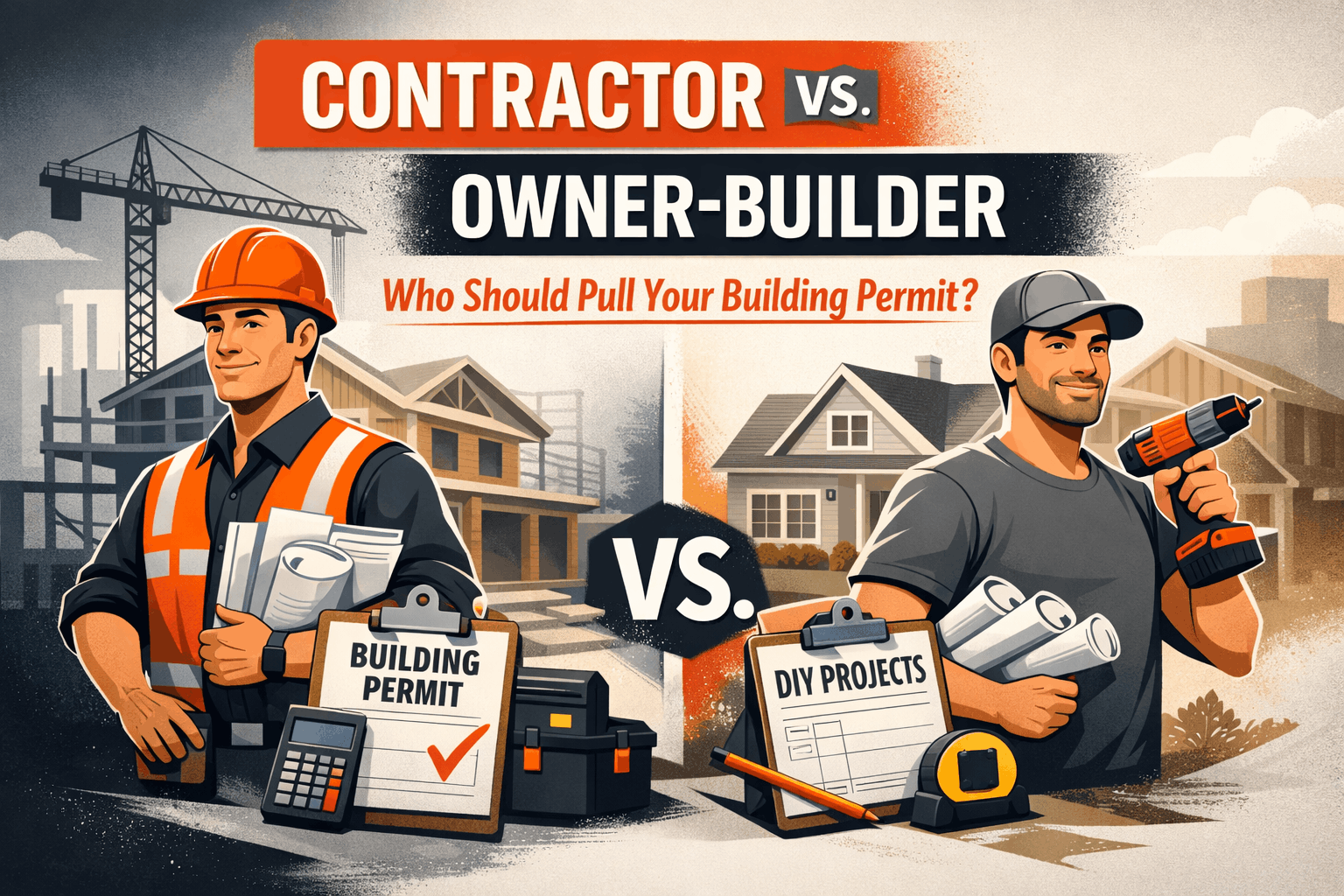How to Use Due Diligence in Real Estate Development to Save Time and Costs
Every real estate project begins with big goals, but success depends on preparation. Developers often focus on design or financing. However, they overlook the groundwork that truly protects a project: due diligence.
Table of Contents
ToggleAt its core, due diligence means reviewing every factor that could affect the land, design, and budget before you commit resources. It helps you avoid risks, keep costs under control, and move through approvals with fewer delays.
At JDJ Consulting Group, we guide investors, builders, and property owners through this process. Our focus is helping clients save time and money while aligning their projects with local rules and market realities.
By the end of this guide, you’ll see how careful due diligence can transform a challenging development into a smoother, more profitable one.
Understanding the Components of Due Diligence in Development
Due diligence covers more than a quick title check or a glance at the zoning map. It’s a structured review across legal, physical, financial, and community angles. Skipping any part often leads to hidden costs or delays.
💰 Due Diligence Cost-Saving Estimator
Estimate potential savings from proper due diligence:
Here are the main categories every developer should evaluate:
Legal and Regulatory Review
- Confirm zoning and land‐use rights
- Review overlays, variances, or special restrictions
- Study local codes, state regulations, and permitting requirements
Site and Physical Review
- Analyze topography, soil conditions, and flood risks
- Verify infrastructure availability: water, sewer, power, and road access
- Assess environmental conditions that may require remediation
Financial and Market Review
- Estimate realistic project costs and revenue potential
- Compare property use scenarios to find the most profitable option
- Factor in holding costs, financing rates, and soft costs
Risk and Stakeholder Review
- Identify potential risks such as lawsuits or environmental liabilities
- Gauge community sentiment and political factors
- Map out all key stakeholders: agencies, utility providers, neighbors
This framework ensures you’re not leaving blind spots in your planning.
How Due Diligence Saves Time in Development
One of the biggest frustrations for developers is delay. Permitting, redesign, and unexpected issues can stall a project for months. Strong due diligence shortens timelines by addressing problems before they snowball.

Here’s how it helps:
Spotting Red Flags Early
Catching problems like zoning conflicts or easement issues at the start prevents late‐stage redesigns. Early discovery allows you to fix or adjust before money is wasted.
Smoother Approval Process
Cities move faster when your application is complete and accurate. By aligning plans with local codes from day one, you avoid repeated corrections and resubmissions.
Phased Due Diligence Approach
Breaking the review into stages helps you move quickly without overspending. Begin with preliminary checks, then expand into detailed studies once the project looks viable.
Tools That Speed Up Work
- Shared data rooms for document management
- Automated reminders for compliance steps
- Standardized checklists to avoid missing details
How Due Diligence Saves Money
Time delays hurt, but unexpected costs can break a project entirely. Due diligence is the best way to control expenses and keep your budget realistic.
Avoiding Costly Mistakes
Discovering problems late in construction—like soil instability—leads to expensive fixes. Early checks help you adjust plans before heavy spending begins.
Reducing Holding and Financing Costs
When approvals drag, you’re still paying interest, property taxes, and insurance. Due diligence speeds up approvals, which reduces these “hidden” costs of waiting.
Optimizing Design for Value
Findings from due diligence can help refine your design. For example, if density limits are stricter than expected, you can redesign earlier rather than build a plan you can’t use.

Managing Risk Exposure
Every project carries risk, but careful due diligence reduces your exposure. Whether it’s avoiding cleanup costs or legal disputes, proactive checks keep risks manageable.
Table 1: How Due Diligence Prevents Extra Costs
| Common Oversight | Cost Impact | How Due Diligence Helps |
| Zoning mismatch | Redesign fees, lost months | Confirms land use rights upfront |
| Poor soil quality | Added foundation costs | Soil studies before purchase |
| Missing utilities | Expensive extensions | Utility access verified early |
| Community opposition | Legal fees, hearings | Stakeholder outreach planned |
Best Practices for Due Diligence in Development
Knowing what to check is one step. Knowing how to check is what saves time and money.
Create a Project-Specific Checklist
Not all projects face the same risks. A mixed-use building will need a different checklist than a small subdivision. At JDJ Consulting, we create tailored lists so nothing gets missed.
Involve Experts Early
Surveyors and entitlement consultants should be on board before you commit to land acquisition. Local expertise—like JDJ’s knowledge of Los Angeles regulations—can make the difference between months and weeks.
Prioritize Critical Path Issues
Some issues can wait, but others must be resolved immediately. Zoning compliance, major infrastructure access, and entitlement restrictions should always come first.
Use Phased Reviews
Breaking the due diligence process into phases avoids overspending at the start. Begin with high-level feasibility. Afterwards, expand into detailed reports once the project shows promise.
Keep Communication Clear
Due diligence involves multiple parties. Developers, consultants, agencies, and community groups must all stay aligned. A well-documented process prevents miscommunication.
🔎 Due Diligence Flow
Common Pitfalls Developers Should Avoid
Even experienced developers sometimes stumble during due diligence. These mistakes can slow progress and inflate budgets.
- Incomplete data: Relying on outdated surveys or old zoning maps leads to bad decisions.
- Overspending too early: Don’t pay for every report before confirming the project is feasible.
- Ignoring soft costs: Planning, entitlement, and legal costs add up quickly.
- Political or community risks: Skipping community feedback can lead to lawsuits/ public opposition.
- Assuming permits are simple: Regulations change often; what worked for one site may not apply to another.
Case Studies: How Due Diligence Impacts Real Projects
Sometimes the best way to see the value of due diligence is through real examples. These scenarios show how early checks either saved costs or could have prevented major problems.
1st Example: Zoning Conflict Avoided
A developer planned a mid‐rise project only to discover height restrictions after purchase. With early zoning research, they could have avoided redesign fees and months of lost time.
2nd Example: Utility Access Confirmed
On another site, early utility checks revealed no nearby sewer line. By catching this before acquisition, the developer avoided six‐figure utility extension costs. Instead, they redirected investment into a more viable property.
3rd Example: Community Outreach Wins Support
A residential builder worked with consultants to host early meetings with neighbors. This reduced opposition at city hearings and sped up approvals.
Table 2: Comparing Projects With vs. Without Strong Due Diligence
| Project Stage | Without Due Diligence | With Due Diligence |
| Land Purchase | Buy first, discover limits later | Verify zoning, soil, and access before buying |
| Design Phase | Redesigns after hidden issues | Plans aligned with codes from start |
| Approvals | Multiple resubmissions, long delays | Streamlined reviews, faster permits |
| Budget | Surprise costs, financing strain | Controlled spending, fewer overruns |
How JDJ Consulting Group Supports Due Diligence
At JDJ Consulting Group, we don’t just manage paperwork—we help clients see the whole picture before breaking ground. Our due diligence services are designed to protect investments and move projects forward.
What We Provide
- Entitlement and zoning analysis: Clear guidance on what the site allows.
- Feasibility studies: Honest review of costs, risks, and project potential.
- Agency coordination: Direct communication with city and state departments.
- Stakeholder management: Helping you balance community expectations with project goals.
Why Clients Choose JDJ
- Local expertise in Los Angeles regulations.
- Proven experience across residential, commercial, and mixed‐use projects.
- Ability to integrate due diligence with permitting, planning, and preconstruction support.
📊 Cost Overruns When Skipping Due Diligence
Source: McKinsey Global Institute – Construction Productivity Report
Integrating Due Diligence into the Development Lifecycle
Due diligence isn’t a one‐time task—it should guide decisions from start to finish. Here’s how it fits into the overall project lifecycle:
Pre‐Acquisition
- Initial site checks (zoning, utilities, environmental risks).
- High‐level feasibility review.
Design and Planning
- Align design with zoning and entitlement requirements.
- Factor in infrastructure and community expectations.
Entitlement and Permitting
- Submit applications backed by complete and accurate data.
- Reduce rejections and resubmissions.
Preconstruction
- Update studies as needed (soil, surveys, environmental).
- Finalize project scope with minimal surprises.
By embedding due diligence into each stage, developers protect their time, costs, and returns.
Key Metrics Developers Should Track During Due Diligence
Measuring the success of due diligence makes it clear whether the process is saving time and money. Here are the most important metrics to monitor:

Time Metrics
- Approval turnaround: Number of days from submittal to approval.
- Delays avoided: Instances where early checks prevented resubmissions or redesign.
Cost Metrics
- Budget accuracy: Difference between projected and actual costs.
- Change orders: How many were required due to unforeseen issues.
- Holding costs: Time a site sits idle before revenue begins.
Risk Metrics
- Environmental or legal disputes avoided.
- Community challenges reduced through early outreach.
- Compliance rate: Approvals received without correction notices.
Due Diligence Is Your Best Investment
Every development project carries risk, but due diligence cuts that risk and adds certainty. By checking legal, physical, and financial factors early, you avoid the delays and surprise costs that derail projects.
In Los Angeles, where regulations are complex and land values are high, due diligence is more than helpful—it is essential. The time and money saved through early review far outweigh the effort and upfront cost.
Partner with JDJ Consulting Group
JDJ Consulting Group helps developers, and property owners use due diligence to make faster, smarter choices. From zoning to entitlement, we guide projects through critical early steps with clarity.
If you’re planning a residential, commercial, or mixed-use development, our team can help you:
- Spot red flags before they become expensive problems.
- Streamline the entitlement and permitting process.
- Align your project with market, community, and legal realities.
Start your project with clarity. Contact JDJ Consulting Group today to learn how expert due diligence can save you both time and money.
📝 Quick Quiz: Do You Know Due Diligence?
Q1: What is the main goal of due diligence in real estate?
Ready to Discuss Your Project?
Get professional guidance and avoid costly delays by connecting with our team.
📞 Contact Us TodayFAQs: Due Diligence to Save Time and Costs
1. What does due diligence mean in real estate development?
Due diligence means carefully reviewing every factor that affects a property before you commit to building. This includes legal rules, physical conditions, finances, and community concerns. The goal is to spot risks early, control costs, and avoid surprises during development.
2. Why is due diligence important before buying land?
Without due diligence, you could buy land that won’t support your project. Problems might include zoning restrictions, environmental limits, or missing infrastructure. Checking these details first confirms whether the site is truly workable before you spend money.
3. What are the main components of due diligence in development?
The process usually includes:
Legal and regulatory review – zoning, land-use rights, and building codes.
Site and physical review – soil quality, topography, flood risk, and utilities.
Financial and market review – costs, revenue potential, and market demand.
Risk and stakeholder review – community input, environmental liabilities, and political factors.
4. How does due diligence save time for developers?
It reduces delays by spotting red flags before they cause problems. Developers can align project plans with local rules and submit complete applications.
5. How does due diligence help reduce project costs?
Early checks prevent expensive mistakes like poor foundation work, redesigns, or utility extensions. It also helps cut holding costs by keeping approvals on track and ensures designs fit the site’s actual conditions.
6. What happens if developers skip due diligence?
Skipping this step can lead to:
Costly redesigns
Approval delays
Unexpected site cleanup expenses
Higher financing and holding costs
Lawsuits or strong community pushback
7. When should due diligence be done in the development process?
Start due diligence before buying land. Keep reviewing at each stage—design, entitlement, permitting, and pre-construction. Think of it as an ongoing process, not a one-time step.
8. How does due diligence affect zoning compliance?
It confirms what the zoning allows before you design the project. This ensures your plans match legal limits and avoids redesigns or disputes later.
9. What due diligence checks are most critical for Los Angeles projects?
In Los Angeles, some of the most important checks are:
Zoning overlays and entitlement restrictions
Infrastructure access like water, sewer, and roads
CEQA environmental review requirements
Community and political considerations
10. How can due diligence improve the permitting process?
When your application is backed by accurate studies, reviewers spend less time asking for corrections. This makes approvals faster and smoother.
11. How does community involvement fit into due diligence?
Reaching out to neighbors early helps spot concerns before hearings. This reduces opposition and builds support for your project.
12. What tools help streamline due diligence?
Some useful tools include:
Centralized data rooms for sharing documents
Automated reminders for compliance steps
Standardized checklists for project teams
13. Can due diligence help with financing?
Yes. Lenders prefer projects backed by solid due diligence. Studies, zoning, and risk assessments show that a project is feasible and lower risk, which makes financing easier to secure.
14. How does JDJ Consulting Group support due diligence?
We provide entitlement and zoning reviews, feasibility studies, agency coordination, and community outreach. Our team helps clients avoid costly mistakes and start with clear, reliable information.
15. What are some common pitfalls developers face without proper due diligence?
Some of the biggest issues include:
Using outdated surveys
Overspending too early on unnecessary studies
Ignoring soft costs
Underestimating political resistance
Assuming permits will be simple to secure
16. Can due diligence impact project design?
Yes. Findings often shape design choices. For example, soil problems or strict density rules may force early changes to make the project workable.
17. How can phased due diligence save money?
Breaking the process into stages avoids overspending upfront. Initial checks filter strong sites, and detailed studies only happen once a project shows real potential.
18. What key metrics should be tracked during due diligence?
Developers often track:
Approval turnaround time
Budget accuracy
Number of change orders
Holding costs
Compliance rates
19. How can due diligence reduce risk exposure?
By identifying legal and financial risks, developers can address them before they become lawsuits.
20. Why is due diligence especially critical in Los Angeles?
Los Angeles is complex, with high land prices, strict regulations, and strong community involvement. Thorough due diligence prevents costly mistakes and protects investments.

